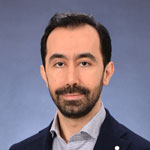Cohort March 2023: Faculty of Applied Sciences – Amir M. Dehkhoda, Alan Chow, Dylan Kipp
Project description
MTRL 251 (Thermodynamics of Materials II) is a recently offered required core course for the Bachelor of Applied Science degree in the Department of Materials Engineering. MTRL 251 replaces two previously taught courses (MTRL 350 and 252) to refine the curriculum and balance workload for students. Thermodynamics is a challenging subject in most engineering programs due to its abstract nature and complex concepts. The students struggle to visualize the abstract concepts and connect them to real life applications. MTRL 251 was taught for the first time in 2022 Winter Term 2 (by the faculty applicant) and the proposed redesign aims to offer a transformed version of this course based on substantive student feedback. According to student feedback, instructor observations, and Students’ Experience of Instruction (SEI) reports, MTRL 251 needs to be re-designed to better align the course content with the learning outcomes; to better support student attainment of core concepts through practice questions; and to help students better understand the abstract course content.
Project details
Based on these course redesign needs, this partnership project aims to accomplish the following:
- Content review & revision: MTRL 251 is designed to cover the majority of topics taught in MTRL 252 and 350, while minimizing the redundancy of covered topics in MTRL 250 (the prerequisite course). Student partners can significantly help with this objective by providing first-hand experience taking MTRL 250, 251, 252, and 350. Their input can further enhance content review, adjustment, and coordination to better reflect on the learning outcomes of MTRL 251.
- Development of an online “question bank”: based on SEI reports and instructor’s observation, there is a significant need to build a question repository for student practice, especially in preparation for Midterm and Final Exams. Student perspective can provide essential insight on different aspects of building question repository, e.g., level of difficulty and number of questions for various chapters. Student partners also provide feedback on different software tools (e.g., based on their experience in other courses) to build and integrate an online question repository (a.k.a, Question Bank). The use of existing software (e.g., WebWork) and AI-powered tools will be examined to achieve this goal.
- Generating AI-enabled digital interactive objects: according to SEI reports, some students faced difficulties in engaging with lectures that involved abstract topics. Digital objects (e.g., diagrams and flowcharts) can dynamically help students visualizing thermodynamic processes, which allows them to interact with variables and explore different scenarios. Recently, some generative AI tools has demonstrated a great potential in designing innovative digital objects. Careful utilization of available and reliable AI tools to create innovative digital content will be conducted in this work. This aspect of the potential redesign can be a validation of the phrase: “A picture is worth a thousand words”.
This proposed course redesign will enhance student learning in MTRL 251 by involving students in the refinement of course content; in the development of AI-enabled interactive objects to help explain abstract concepts; and in the development of a question bank.
Testimonials

The Students as Partners project has been an amazing learning experience. I feel lucky to work with a professor whom I admire and an upper year student who has been where I am. I feel honored to have the opportunity to help continue the growth of UBC’s educational prowess. I feel I have been able to provide great insight into this project, as a student who previously took the course that is being redesigned. This gives me personal insight into how to make the course better and more efficient. It is a unique position to be a student and teacher where I can directly impact someone’s education. I hope I can apply what I have learned from this experience to my career and future endeavors!
— Dylan Kipp

Receiving the Student as Partners funding from UBC has been instrumental in reshaping our educational approach. This support enabled us to establish a collaborative platform where students are not just participants but active contributors in the educational process. With this funding, we’ve seen a transformation in the learning environment, fostering a culture of engagement, shared responsibility, and innovation. Our team is made of student partners who took the first offering of the course and have provided valuable insight into this transformation. Empowering students as partners in curriculum development and decision-making has not only enriched the educational experience but has also laid the foundation for a more inclusive, responsive, and student-centric educational approach. We’re incredibly grateful for this opportunity by CTLT, which has allowed us to redefine learning and teaching experience within our course and Department.
— Amir Dehkhoda

Participating in the SaP program had been an enriching journey. I am grateful for the opportunity to collaborate with a professor and a fellow student in reshaping our thermodynamics course for second-year materials engineering students. This experience allowed me to explore professorial pedagogy which greatly broadened my perspective. Through this collaboration, I have brought a unique undergraduate perspective to course redesign and hence contribute to a more student oriented and engaging learning environment. An aspect of the project that was particularly interesting was exploring the potential of integrating AI into an educational environment. We looked into ways of how AI could be used to improve the learning experience of students and increase student engagement on the topic of thermodynamics. Overall, this experience allowed me to develop a better understanding of thermodynamics and how AI could be used in educational environment. I am honored to be part of shaping the educational landscape at this school and am excited to see the impact of our project on future materials engineering student.
— Alan Chow
